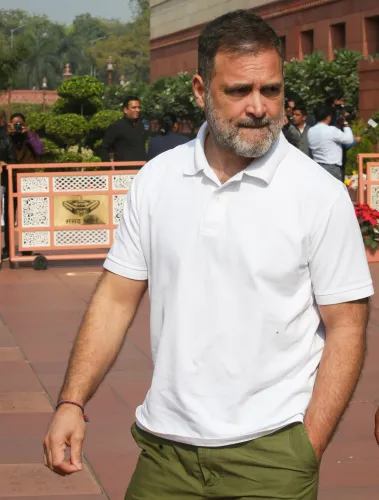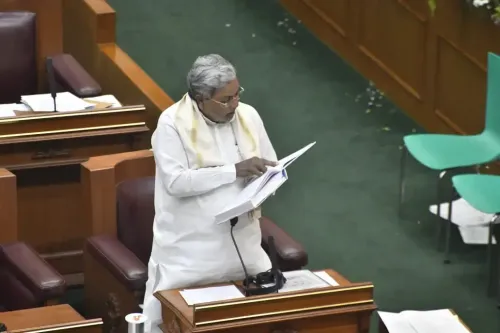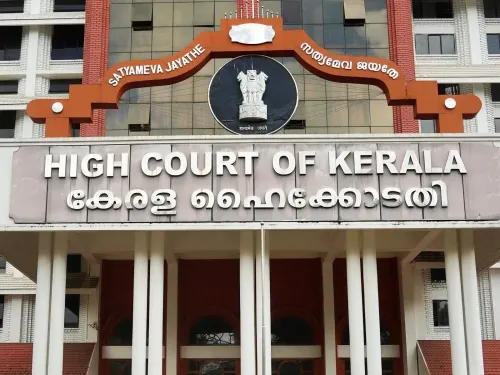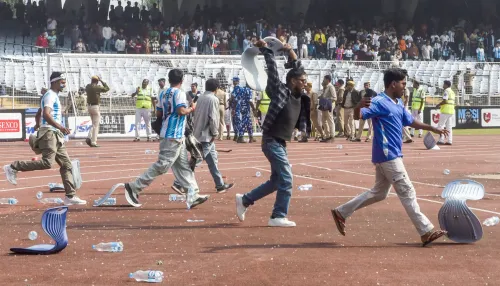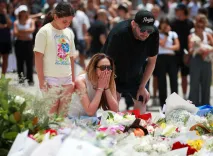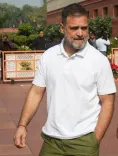Kharge Labels Waqf JPC Report as 'Unconstitutional'; Centre Accuses Opposition of Misleading
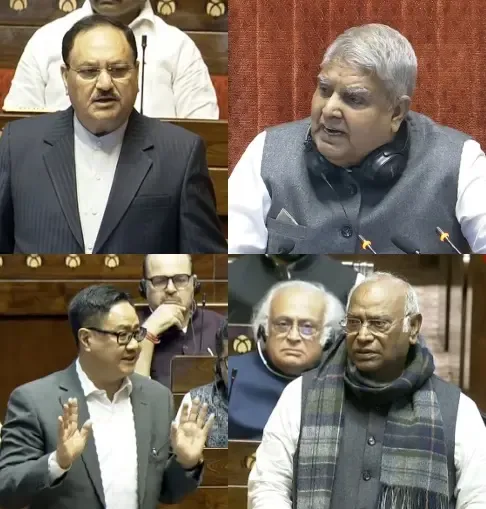
Synopsis
Key Takeaways
- Kharge criticizes JPC report as unconstitutional.
- Opposition alleges dissent notes were disregarded.
- Nadda defends the parliamentary process.
- Rijiju dismisses misleading claims from Opposition.
- Waqf (Amendment) Bill aims to reform property management.
New Delhi, Feb 13 (NationPress) The Joint Parliamentary Committee (JPC) on the Waqf (Amendment) bill presented its report in the Rajya Sabha on Thursday amidst significant uproar from the Opposition members. During the ensuing chaos, the House was temporarily adjourned for 10 minutes before reconvening, allowing both sides to discuss the bill.
Leader of the House J.P. Nadda criticized the Opposition for their disruptive behavior during the reading of the President's note.
The Leader of the Opposition in the Rajya Sabha, Mallikarjun Kharge, labeled the report as “unconstitutional” and “fake.” He alleged that several members had submitted dissenting notes, yet the majority’s perspective was imposed without appropriate consideration.
Kharge stated, “The JPC report on Waqf had dissenting views from several members, but they were bulldozed. This is not right. It is condemnable and an anti-democratic act.”
Expressing his “shock,” he remarked, “The dissenting views were deleted, and the report is being tabled. I condemn this, and the House will never accept this fake report.”
He demanded that if dissenting perspectives were omitted, the report should be retracted and reassessed. Kharge urged Leader of the House J.P. Nadda to withdraw the “unconstitutional” JPC report.
In response, Nadda rebuked the Opposition for their actions, asserting, “Debates and discussions are necessary in Parliament. In a democracy, we agree to disagree. But we must uphold traditions and conduct proceedings in a constitutional manner.”
He expressed disappointment, stating, “Despite repeated requests from the Chair, the Opposition disrupted the House even during the President's message. This behaviour is highly irresponsible and deserves strong condemnation.”
Union Parliamentary Affairs Minister Kiren Rijiju also targeted the Opposition, accusing them of “misleading” the issue. He clarified that no part of the report had been deleted or altered.
Rijiju stated, “Some of the concerns raised by the Opposition were verified, and I found that no section of the report was removed. Everything has been tabled before the House. On what basis are these allegations being made? Do not mislead the issue.”
He emphasized that the Opposition had actively participated in the report's preparation over the past six months.
Jagdambika Pal, a BJP MP and Chairman of the JPC for the Waqf (Amendment) Bill, previously stated that the committee was presenting its report following extensive consultations.
Pal noted that disagreements are part of the legislative process. He added that even after finalizing the report, dissenting members were invited to submit their notes of dissent, which were included along with feedback from stakeholders.
Nevertheless, opposition leaders continued to voice their objections. Trinamool Congress MPs Kalyan Banerjee and Md Nadimul Haque, both JPC members, accused the committee of omitting critical portions of their dissent notes from the final report.
The Waqf Act of 1995, aimed at regulating Waqf properties, has faced long-standing criticism for mismanagement, corruption, and unlawful encroachments. The Waqf (Amendment) Bill, 2024, intends to tackle these issues through reforms, including digitization of records, enhanced auditing measures, improved transparency, and legal frameworks to reclaim unlawfully occupied properties.


